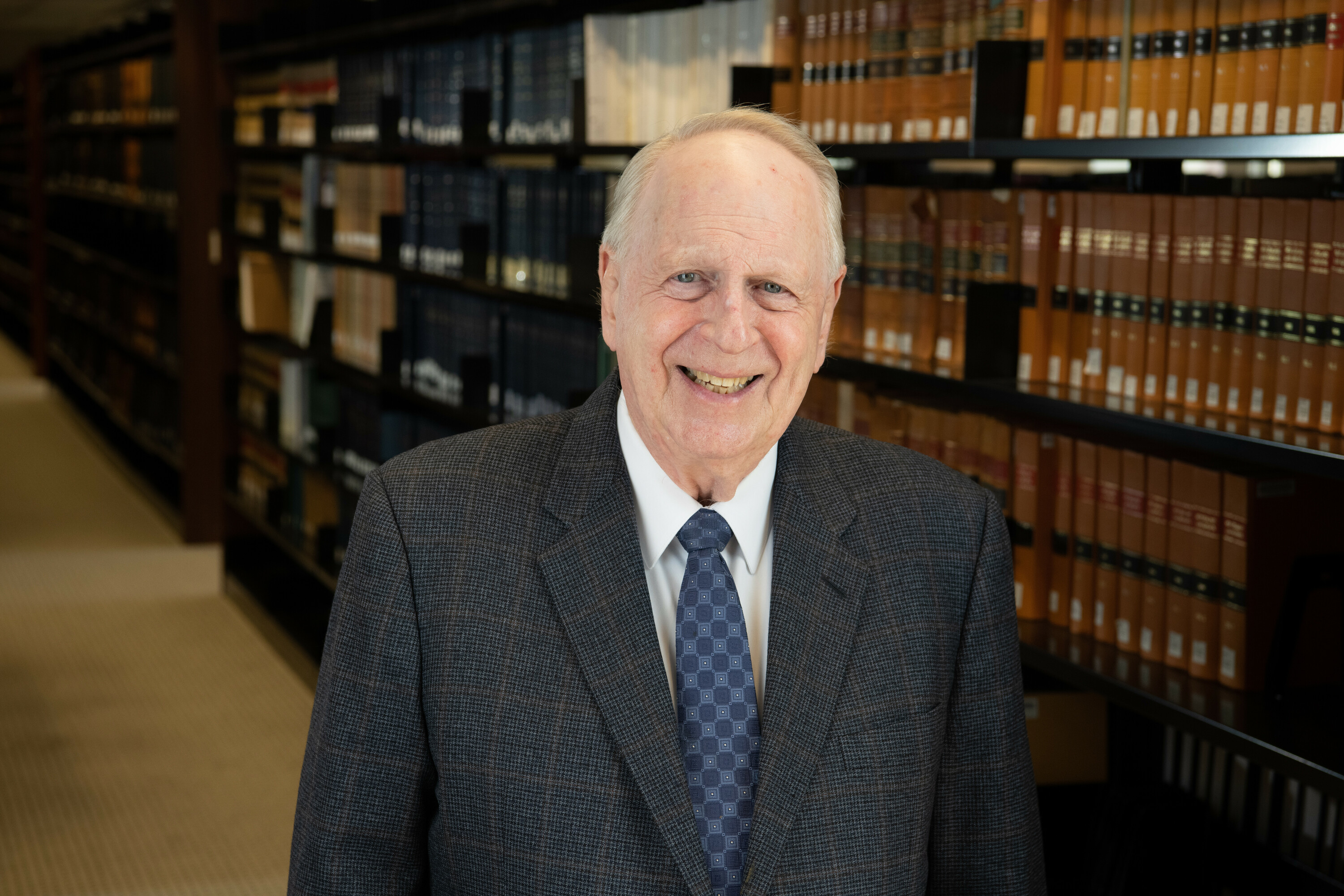Teaching Resources
The Law Library handles copyright permissions of course materials. This includes print course packs, materials that are distributed during the semester, and materials to be loaded onto Blackboard pages. Course materials, regardless of the number of pages, must be submitted directly to the Law Library for copyright clearance. Once the course materials are submitted to the library, a determination will be made as to whether copyright permission is required. In order to manage this process in a timely fashion, documents are to be submitted in sufficient time to have the materials checked, photocopied and available to students well before they will be needed. Submit course documents to law-copyrightclearance@law.umaryland.edu or call 410-706-0784. Once permission is granted for the materials, the library can also help facilitate the delivery of materials to the Copy Center for duplication.
Your library liaison is available to help you locate appropriate readings for specific topics, to obtain any materials not in the library, and to assist with questions that you may have regarding linking to articles on your course Blackboard page.
Library Reserves
For assistance with desk copies and instructor editions, casebooks, and other course materials, please email coursematerials@law.umaryland.edu.
The Media Services Department will contact each instructor prior to the beginning of the semester to ask which of three classroom recording policies the instructor prefers for the class:
- Media Services will automatically record all regularly scheduled classes and make the recordings available to students registered in this course through the end of this semester.
- Recording is not permitted in this course except when the Deans’ office authorizes general recording. The Deans’ office may authorize general recording for some religious holidays and on inclement weather days. When recording is authorized under these circumstances, recordings will be available to all students registered in the course for remainder of the semester.
- Recording is not permitted in this course.
Please note that if you select options 2 or 3, Media Services cannot record individual class sessions to accommodate student absences. When an individual student must miss a class for any reason and wishes to have the class recorded, the student must obtain faculty member approval and ask a classmate to record the class.
In certain circumstances, the Office of Student Affairs will contact faculty to request classroom recording to support recommended ADA accommodations.
The Self Service Technology Instructions briefly explain the audiovisual equipment in the law school classrooms. Specific instructions for each room are posted near the lectern or on the wall in each room. For more information on classroom technology or to schedule a training session, please contact the Media Services Department at mediaservices@law.umaryland.edu, 410-706-8413, Room 308.
Large Classrooms (107, 108, 302, & 460) and Room 205 (ADA lectern) Instructions
Seminar Room (309, 310, 402, 405, & 473) and Room 300 A/B Instructions
Courtroom and Boardroom Instructions
Clinic Interview Rooms (362, 363, 364, 366)
Clinic Interview Rooms must be booked in advance with the Clinical Law Program, 410-706-3295. You may record a session in the interview room via a timed session scheduled with Media Services, or you can initiate an individual unscheduled recording. For assistance, please contact the Media Services Department at mediaservices@law.umaryland.edu, 410-706-8413, Room 308.
The classroom seating charts are in PowerPoint format and created to support our standard size student photo.
Room 107 - right sideRoom 107 - right side
The University is legally required to provide reasonable accommodations for students with disabilities, and faculty play a critical role in this process. Students seeking academic accommodations must have their requests evaluated by the Office of Educational Support and Disability Services (ESDS). You are encouraged to include instructions regarding the ESDS process in your syllabus:
Students seeking academic accommodations must submit a “Request for Accommodations” to the Office of Educational Support and Disability Services (ESDS). To submit a request, go to the following website: http://www.umaryland.edu/disabilityservices/. At the bottom of the page under “Quick Links” select “Request an Accommodation”. Please request accommodations as early as possible each semester or as soon as you have determined your semester schedule. Keep in mind that this process can take a while and often requires an evaluation of medical documentation and the results of diagnostic tests.
Faculty must provide reasonable accommodations for quizzes given during class sessions, as well as for graded written work (papers). Extra time granted on written work should be “reasonable in light of the essential requirements of the course.” Deference is given to the professor to determine an extension that is most appropriate for the course.
The law school’s liaison to the Office of Educational Support and Disability Services is Erica Smith, Associate Dean of Student Services. You can contact Dean Smith at e.smith@law.umaryland.edu.
The library maintains a file of previous course exams to which faculty members may choose to contribute. To view a list of exams you have on file, select your name from the drop-down menu on the library's Exams on File page. To add an exam to your exam file, please send an electronic copy of the exam to law-web@law.umaryland.edu.
Administrative Offices
Campus Resources
Employee Handbooks & Policies
Employee Policies & Procedures
Policy on the Employment of Adjunct Faculty
News & Events
News
Read newsFaculty News
Read faculty newsEvents
View events
Website Updates
Course Catalog Updates
Review the course catalog listing for your course(s) prior to the beginning of the semester. Email changes to the Office of Registration and Enrollment at registration@law.umaryland.edu.
Directory Updates
Update your profile picture, bio, or other information in the directory by emailing your changes to law-web@law.umaryland.edu.
General Website Updates
Email your general website updates to law-web@law.umaryland.edu.
Research and Scholarship
The Thurgood Marshall Law Library offers a wide array of services and programs to assist faculty members with scholarship. Research assistance is also available from Ryan H. Easley Research Fellows. Contact Senior Research Fellow Sue McCarty to request the assistance of a research fellow.
The Ryan H. Easley Research Fellows provide scholarly support to faculty members. The fellow responds to requests from individual faculty members for assistance with law review articles and other works of scholarship, including broad and substantive research, detailed citation checking, and editing for style and format.
Research fellows are available to assist with editing, footnote creation, citation checking and formatting, and proofreading. While we try to meet everyone’s deadlines, it is best to give us as much advance notice as possible if you need work done in a specific time frame. Contact Sue McCarty, Senior Research Fellow to request the assistance of a research fellow.
Electronic Submission Service
Faculty members may submit scholarly works using the Berkeley Electronic Press’ ExpressO service. Using ExpressO eliminates photocopying, assembling, printing and mailing and provides rapid acknowledgment and periodic status updates.
If you are ready to submit an article for publication using ExpressO, the library can provide assistance with targeting journals and uploading papers. For assistance, please contact your library liaison or Sue McCarty.
ExpressO, a service of Berkeley Electronic Press. bepress™ has arrangements with over 750 law reviews, including all the "top 100" publications. ExpressO allows authors to include a cover letter and a C.V. as part of the submission; accepts documents in Word (or WordPerfect); delivers papers in real time; allows authors to track submissions; has the capability to "expedite" the submission process; requires no abstract or posting of a paper prior to submission; and delivers articles electronically, unless a law review will not accept electronic submissions, in which case the article will be delivered in print.
To submit a paper through ExpressO, follow these steps:
- Go to http://www.law.bepress.com/expresso/
- If you do not have an existing account, create one using your @law.umaryland.edu email address
- Select manuscript file format
- Create and verify the list of law reviews to which your article should be submitted
- Upload a cover letter (if desired) and the article
- Click finish
The University of Maryland School of Law encourages its faculty to use the AALS Model Author/Journal Agreement to judge agreements received from law journals.
All five student-edited journals published at the University of Maryland School of Law have adopted the AALS Model Agreement.
The Law Library provides a one-stop shop to support faculty publication of manuscripts. This includes initial research and editing, as well as advising faculty members on obtaining copyright permissions for scholarship, reviewing author agreements, identifying publication options, assistance with targeting journals, updating Hein Scholar Profiles and ORCiD profiles, and uploading papers to SSRN and the school’s institutional repository, the Digital Commons. For more information on these services, please visit the Law Library's faculty publication support page or contact Managing Research Fellow Sue McCarty.



